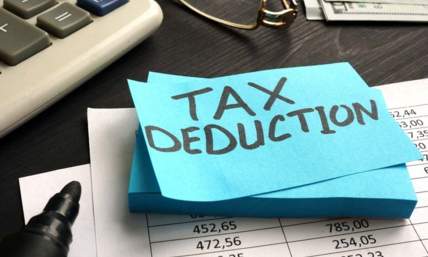What Are The 6 Golden Rules Of Personal Finance?
When it comes to personal finance, it is harder than ever to start meeting your financial goals, which can range from retirement planning to saving for college for your children or simply planning for short-term financial needs.
The economy can be a frightening place to navigate, particularly in our contemporary day and age, leading to difficulties in establishing and maintaining personal finances, especially for younger people.
It is more important than ever to obtain a firm grasp on your personal finances and in this article, we are going to be helping you to do this by looking at six golden rules to consider when it comes to managing and planning your personal finances. Let's get started.
Also read: Free Excel Bookkeeping Templates

-
Plan For The Long Term and the Short Term
It is easy to forget to plan for financial situations in the future, but this can be a make-or-break situation with your personal finances.
A long term plan- such as beginning to plan for retirement- is going to be incredibly beneficial for you further down the line in your life, so make things easier for yourself by setting aside a portion of your finances to plan for long term situations such as this.
That isn't to say that short-term finances should be left by the wayside, though, as this is also a crucial element when it comes to knowing where you are at with your personal finances.
Whether it is knowing how much you are paying for gas on your drive to work every day or keeping tabs on your weekly shopping budget, knowing your finances for short term situations as well as the long term is an absolute necessity.
Also read: Accounting Journal Entries Examples
-
Don’t Live Beyond Your Means
Regardless of your income, it is imperative to save some of all of your earnings to start building on your personal finances.
Don’t spend more than you earn, as this is very likely to lead to you living beyond your means. If this happens, then your opportunity to start saving and building up your personal finances becomes smaller and smaller.
This might seem easy enough to put into practice, but it is definitely harder than you might think to ensure that you don't overspend, which is where proper planning comes in handy.
Also read: 12 Best Rent Reporting Services

-
Diversify Your Investments
It might seem a bit frightening to make investments in the first place if you are not used to doing so, but investing can be a great way to increase your personal finances.
Investing can be risky, but it's all about moderation and investing in the opportunities that could be beneficial to you and your personal circumstances.
There are different risks that are associated with investing and the different avenues available, but the main goal that you will want to aim for is to go for investments that aren't too risky, but that also protect your finances against any short term shifts that might occur in the economy whilst also mitigating losses that are incurred in a long term situation.
Also read: Balance Sheet vs Income Statement
-
Always Pay Your Debts
Debt management is a tricky nut to crack, with various schools of thought available on the subject. Some consider it wiser to pay off smaller debts first- which is likely to be the only option for those who live paycheck to paycheck-, whilst others advise that paying off higher-interest loans first is more beneficial in the long run- if you are able to do so- due to the possibility of compound interest without risking loss from debt liabilities.
There are benefits to both debt repayment methods, but the key thing to remember is to never allow your debts to grow by not paying them, as this can be severely detrimental to your personal finances in both the long term and the short term.
Also read: What Is a Pro Forma Income Statement?
-
Set Various Budgets
Budgeting is always going to be key to knowing where you are at with your personal finances, but it can be easy to overlook aspects of your finances and only budget for certain things.
For instance, you are likely to budget for special occasions, vacations etc., but you might not think to budget for your daily essentials or for your regular groceries.
Establishing a budget for every aspect of your finances might be a little bit time-consuming, but in the long run, it will make all the difference when it comes to knowing exactly where you are at with your personal finances.
-
Establish an Emergency Fund
Last but not least, emergency fund or rainy day savings are an absolute must due to the entirely unpredictable nature of life itself!
You never truly know what is going to happen from one day to the next, be it a medical emergency, a sudden change in your working circumstances, pet health problems, car issues, repairs that need to be done in your home or a wealth of other possible emergencies.
If you don't have the cash to deal with these kinds of situations, it could lead to you having to take out loans that can lead to more dire financial circumstances down the line.
To avoid this as best you can, try and establish an emergency fund as soon as possible and pay into it depending on your current personal financial situation.
Even if you only have a bit of money currently saved up for a rainy day, it will give you some much-needed peace of mind.

Final Thoughts
So there you have six particularly noteworthy rules to remember when it comes to your personal finances.
If you find that you are struggling to keep your finances in control, try and speak with a professional- such as a financial planner or financial advisor- to help get you on the right track.
So long as you are sensible and remember to ask for help when it is needed, you should be well on your way to establishing and reaching your personal financial goals!
A free paystub generator is a great, affordable way to create custom paystubs.















